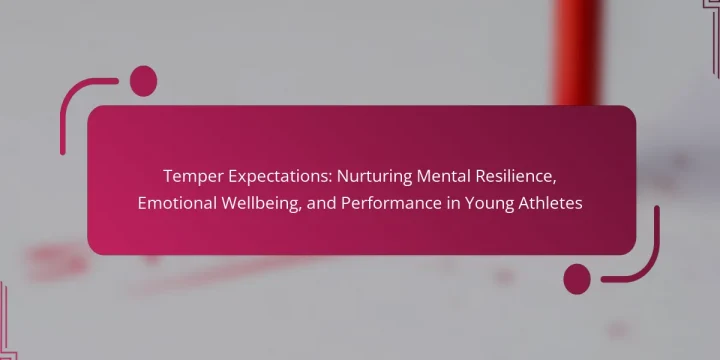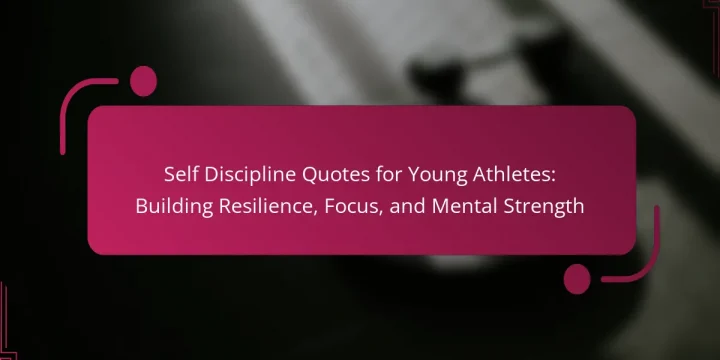
Nurturing mental resilience and emotional wellbeing in young athletes is essential for optimal performance. This involves tempering expectations, setting realistic goals, and fostering a growth mindset. Encouraging open communication and support systems can help manage pressure and anxiety. Additionally, integrating mindfulness and visualization techniques promotes focus and emotional regulation, enhancing overall wellbeing. How Can Mental Resilience Be Developed in Young Athletes? To develop mental resilience in young athletes, it is essential to temper expectations. This involves fostering a supportive environment that emphasizes growth over immediate success. Encouragement of a growth mindset can help athletes view challenges as opportunities. Setting realistic goals is crucial. Athletes should focus on personal improvement rather than solely on winning. This approach reduces pressure and enhances emotional wellbeing. Regular feedback from coaches and parents can reinforce…







